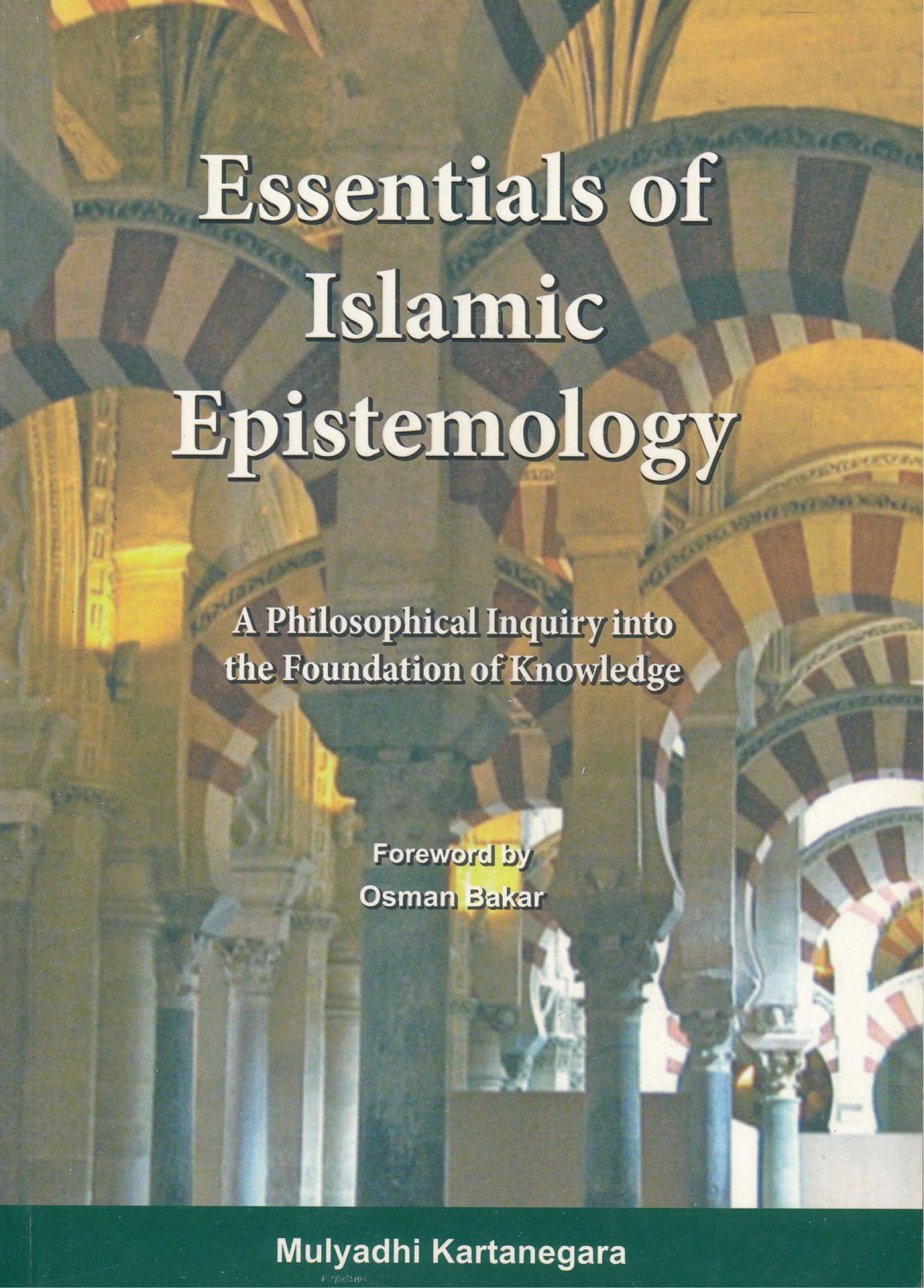ESSENTIALS ISLAMIC EPISTEMOLOGY
Summary of “Essentials of Islamic Epistemology” by Mulyadhi Kartanegara
The book “Essentials of Islamic Epistemology” by Mulyadhi Kartanegara is a philosophical inquiry into the foundation of knowledge from an Islamic perspective. It critically examines Western epistemology and proposes an Islamic alternative that integrates reason, revelation, and intuition. The book argues that modern Western epistemology, although advanced, is limited in scope and fails to address deeper metaphysical and spiritual dimensions of knowledge.
⸻
1. Purpose and Structure of the Book
The book seeks to:
• Provide an alternative epistemological framework grounded in Islamic philosophy.
• Critically evaluate the shortcomings of Western epistemology.
• Address the lack of epistemological studies in the Malay and broader Islamic world.
• Offer a comprehensive discussion on knowledge, covering science, philosophy, and religion.
The book is structured into 14 chapters, each discussing a different aspect of epistemology, including scientific methods, objectivity, mystical experience, and the Islamization of knowledge.
⸻
2. The Foundations of Islamic Epistemology
The book emphasizes three main sources of knowledge in Islamic thought:
• Sense Perception (Empirical Knowledge) – Knowledge obtained through observation and experience.
• Rational Thought (Reasoning) – The use of logic and intellectual inquiry to derive truths.
• Revelation (Divine Knowledge) – Knowledge that is beyond human experience, revealed through prophets and scriptures.
Western epistemology, in contrast, relies heavily on empirical and rational knowledge, often rejecting revelation and intuition as valid sources of knowledge.
⸻
3. Comparison Between Islamic and Western Epistemology
The author highlights key differences between the two traditions:
The comparison between Islamic and Western epistemology highlights fundamental differences in their approach to knowledge. Islamic epistemology embraces a holistic view, integrating reason, empirical evidence, revelation, and spiritual insight as valid sources of knowledge. It acknowledges the metaphysical realm and considers knowledge a means to attain truth and divine wisdom.
In contrast, Western epistemology is primarily rationalistic and empirical, relying on scientific observation and logical reasoning, often excluding revelation and mystical experiences. It prioritizes objectivity, skepticism, and material understanding, aiming to explain and control the physical world.
While Islamic thought sees knowledge as a path to moral and spiritual development, Western thought often focuses on technological progress and worldly understanding. The key difference lies in the recognition of divine guidance and the unseen—Islamic epistemology affirms it, while Western epistemology largely dismisses it.
⸻
4. Key Epistemological Issues in the Book
a) Scientific Methods in Islam vs. the West
• The book argues that Islamic science is broader than Western science because it does not reject non-empirical realities.
• Muslim philosophers such as Al-Farabi and Ibn Sina recognized both physical and metaphysical aspects of reality.
• Unlike modern science, Islamic science accommodates intuitive and spiritual experiences as valid sources of knowledge.
b) Objectivity and Truth in Knowledge
• The book challenges the Western claim of absolute objectivity, arguing that all knowledge is influenced by worldview and biases.
• Islamic epistemology seeks to balance rationality with divine guidance, rather than relying solely on empirical observation.
c) The Role of Mystical Experience in Knowledge
• Unlike Western science, which largely dismisses mystical experiences, Islamic philosophy acknowledges them as valid insights into reality.
• Sufis and Islamic philosophers argue that mystical visions and spiritual experiences provide higher forms of knowledge beyond reason.
d) Islamization of Knowledge
• The book advocates for the Islamization of knowledge, where modern scientific and philosophical ideas are reinterpreted through an Islamic lens.
• This concept rejects secularism in knowledge and promotes an integrated approach that respects divine wisdom.
• It discusses how the secularization of knowledge has led to moral and ethical crises in modern education.
⸻
5. Impact and Relevance of the Book
• The book is a major contribution to Islamic philosophy, providing a comprehensive framework for understanding knowledge from an Islamic viewpoint.
• It is particularly valuable for academics, philosophers, and students of Islamic studies, offering insights into alternative ways of knowing.
• The author argues that Muslim scholars must actively engage in epistemological debates to ensure that Islamic knowledge is not overshadowed by Western secular paradigms.
⸻
Conclusion
“Essentials of Islamic Epistemology” presents a thought-provoking critique of Western epistemology and offers a holistic approach to knowledge that integrates reason, revelation, and spirituality. It argues that Islamic epistemology provides a more comprehensive understanding of reality, one that respects both the material and the spiritual dimensions of existence.
